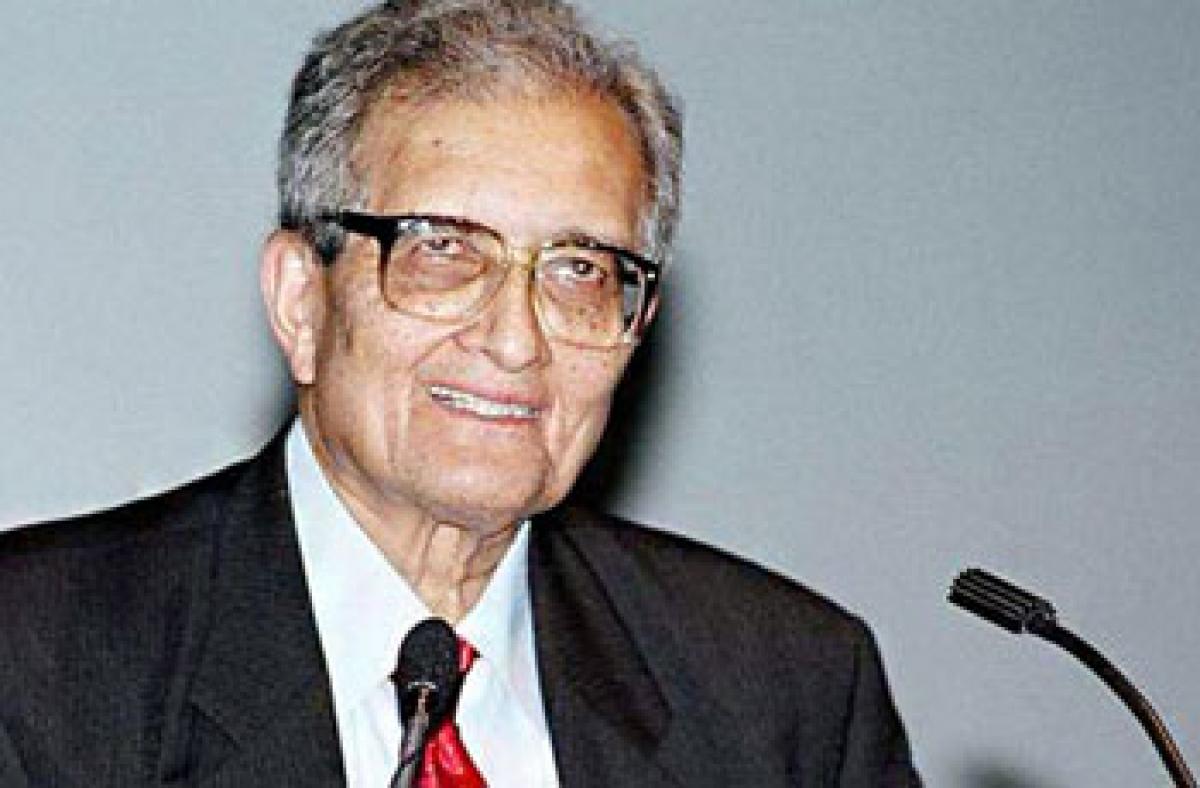Live
- What’s The Matter At Hand?
- Pollution levels continue to soar in Yamuna
- 540 touts held for duping passengers at IGI Airport
- Keen to bring Sports Bill in Budget Session: Mandaviya
- HC to hear plea against Kejriwal's bail in Jan
- SC grants bail to two in Waqf Board money laundering case
- Is ‘Deep State’ threat real or just a bogey?
- Sisodia not to report to police twice a week: SC
- No possibility of alliance with Cong for Delhi polls: Kejriwal
- Marriage an integral part of life: Top court enhances compensation to road accident victim
Just In

Nobel laureate and eminent economist Amartya Sen on Wednesday praised the odd-even policy rolled out by the Delhi government on a trial basis from January 1, saying such a move will bring in confidence to conduct more such plans to curb pollution.
New Delhi: Nobel laureate and eminent economist Amartya Sen on Wednesday praised the odd-even policy rolled out by the Delhi government on a trial basis from January 1, saying such a move will bring in confidence to conduct more such plans to curb pollution.
"The fact that it succeeded, it brings happiness and it brings confidence that something like this can be done. And I hope there will be many more to reduce pollution and other environmental hazards," he said.
Sen also praised the Delhi government saying that it takes "political will" to roll out such an initiative, while criticising the central government for neglecting the health and education sector.
"The previous government was spending less (on education). But the current government is spending even lesser. This is very unfortunate," he said here at the Nobel Solutions Summit, where Nobel laureates from across the globe gathered to debate, discuss and deliberate on the major challenges being faced by the world and India as well.
Sen also contended that 'saffronisation' of education is happening in India.
"To some extent it (saffronisation) is certainly happening in education). The important question is if whether its happening so much that it becomes the most important issue," he said.
With elections to the West Bengal assembly scheduled this year, Sen expressed hope that the current leadership of the Left, especially the major party (Communist Party of India-Marxist) can learn from its previous political debacles.
"I've been critical of the Left, although I see myself as being a part of the Left. I think the attention of the Left got too confined to some very narrow attitude.. like the dominance of American imperialism and nothing else.
"There are other issues (as well) in the present leadership under (new general secretary Sitaram) Yechury. I think the Left has also learnt something from the defeat in the past few years (in elections). I think they will probably take a note of that and try to do something on it."
On the issue of "intolerance", he noted that there was intolerance in the previous government as well. "But the intolerance is much larger now and much more politically channelled. There might be others who would say that it (returning awards) is not the best way (to raise voice on intolerance) and that there might be a better way. Condemning 'award-wapsi' is also not a good way of responding to the current situation."
"I think I see what these people who have returned their award intended to do.. I respect that and to some extent they have achieved in drawing attention to it," he added.
Sen received Nobel Prize in Economics in 1998 for his contribution to welfare economics.

© 2024 Hyderabad Media House Limited/The Hans India. All rights reserved. Powered by hocalwire.com







